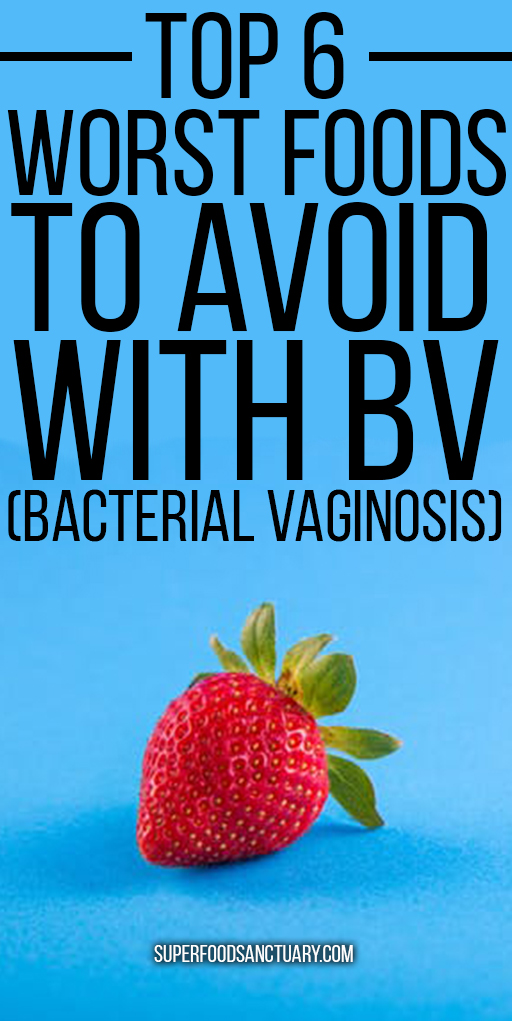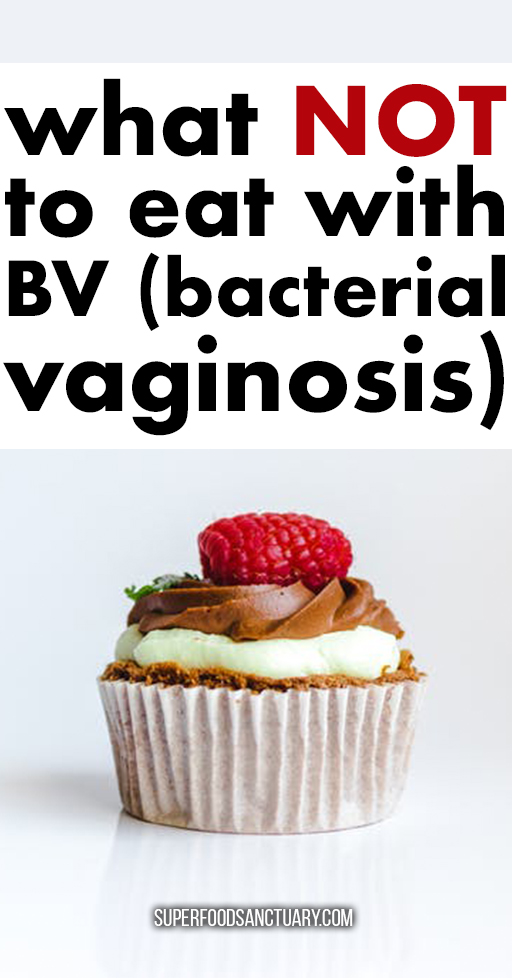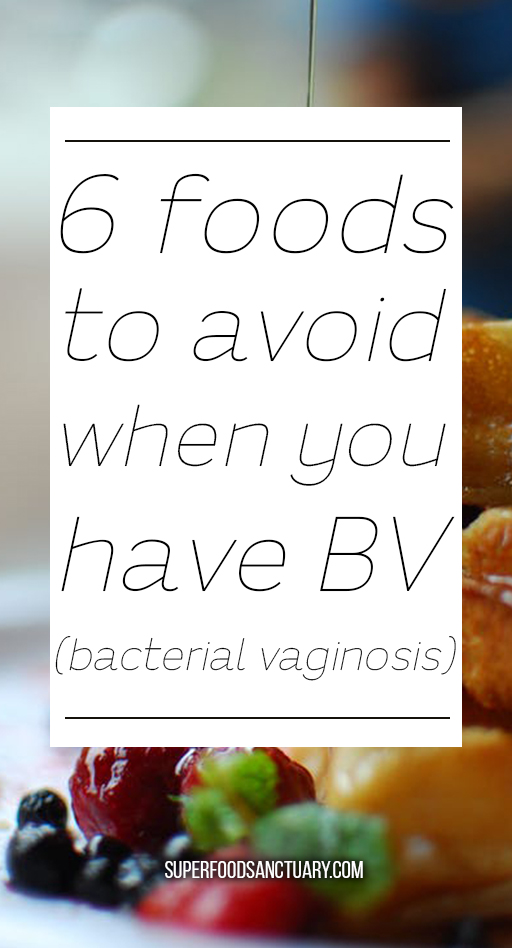Let’s face it – BV is one of the most unpleasant things a woman can have to deal with! Diet plays a huge role in helping manage, prevent and get rid of BV so today we are going to be looking at 6 foods to avoid with BV…

What is BV & its Causes
BV is a vaginal infection caused when the bad bacteria in the vagina outgrows the good bacteria. A healthy vagina contains beneficial bacteria, that helps keep it clean and well-functioning. A healthy vagina also has a slightly acidic pH, which helps keep away ‘bad’ bacteria that cause infection.
However, sometimes due to reasons such as using feminine washes down there, coming off birth control pills, removing an IUD, having a new sex partner or multiple partners and also just finishing your period can disrupt the pH of your vagina causing it to become alkaline. This causes the bad bacteria to take hold and multiply rapidly because these bacteria thrive in an alkaline environment. Overgrowth of bad bacteria in the vagina leads to the development of bacterial vaginosis.
You can read about Natural Remedies to Get Rid of Bacterial Vaginosis posted on this website. Meanwhile, in this post, we shall be looking at the top 6 foods to avoid with BV:
6 Foods to Avoid with BV

1. Alcohol
Consumption of alcohol can contribute to poor vaginal health. Alcohol is very dehydrating, which hinders natural vaginal lubrication meant to keep the vagina clean and well-functioning. It also contributes to unpleasant vaginal odor, which many women with BV experience.
2. Sugary Foods
Sugary foods such as sweets and confectioneries not only increase your risk of getting a yeast infection, but also bacterial vaginosis. Yeast and bacteria naturally found in the vagina love sugar and can overgrow when you consume high amounts of sugar which spikes your blood sugar levels.
Try to limit how much sugar you take in your tea or coffee. When you have BV, you will have to cut out soft drinks, sweets and other sugary foods to help heal faster.
3. Fried Foods
Anything fried, especially using refined oil can upset the balance of bacteria down there, which makes it easier for you to develop bacterial vaginosis. The reason is that fried foods contain a lot of saturated fat that change the pH of your vagina, making it easier for the bad kind of bacteria to take hold and accumulate rapidly. This leads to symptoms like fishy odor, itching, and burning.
Try baked, air-fried, boiled or steamed versions of foods and avoid fried foods while you have BV.
4. Refined Carbohydrates
Refined carbohydrates, also known as refined carbs should also be avoided or limited when you are suffering from BV. Foods that come under refined carbohydrates include anything that is made using refined grains such as white bread, pasta, pizza and pastries, among others. This is because refined carbs raise blood sugar levels which may increase your risk for bacterial vaginosis by making bad bacteria, which feeds on sugar, grow rapidly in the vagina.
While you’re combating BV, switch to whole grains like whole wheat pasta and whole wheat bread or brown bread.
5. Cheese
Cheese is also a no-no when it comes to the top foods to avoid with BV. Eating too much cheese, which is rich in saturated fat can disrupt the balance of bacteria in your vagina. It can lead to rapid growth of bad bacteria which puts you at a risk of getting bacterial vaginosis. Eating too much cheese can also give you higher chances of a yeast infection.
Cut out cheese from your diet when you have bacterial vaginosis to help get rid of the infection faster.
6. Foods High in Saturated Fat
Research has shown that high fat intake, especially saturated fat actually increases the pH of the vagina. The vagina naturally has a slightly acidic pH, which helps keep bad bacteria from growing and causing infections such as bacterial vaginosis.
Try to limit foods containing high saturated fat such as whole milk, butter, whipped cream, fatty cuts of meat, margarine and others, while you have BV.

So there you have it – a list of the worst foods to avoid with BV…Eating right and cutting out the wrong foods can prove to be very useful in helping manage BV and getting rid of it at a faster rate!
Leave a Reply